Well, my monthly reviews fell by the wayside this year, but I did continue to track my reading and viewing habits. In 2024, I read 125 books, watched 60 movies, and watched an additional 33 documentaries. The full list is provided below but first, the “best of the best” and the “worst of the worst”!
THE BEST OF THE BEST
BEST BOOKS
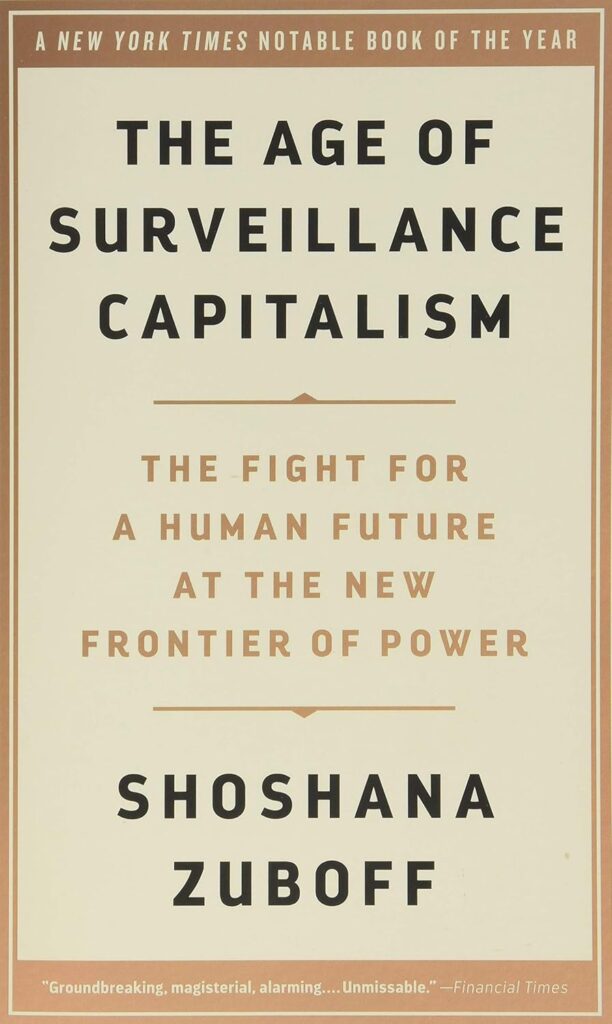
The last few years, instead of picking a single book as the “book of the year,” I’ve picked an author whose multiple books had a profound impact on me. This year, however, there really is one book that has influenced me and stayed with me more than the others. That book is The Age of Surveillance Capitalism: The Fight for a Human Future at the New Frontier of Power by Shoshana Zuboff. It’s a thorough and damning study of the rise of the big, big tech companies (specifically: Meta, Apple, Microsoft, Amazon, and Alphabet or MAMAA as they’re now sometimes called). Not only this but it looks at the consequences of the hegemony achieved by MAMAA and the impact this has on us collectively and as individuals (although, granted, some to the more Marxist or anarchist Left have criticized Zuboff, fairly enough, for being too focused on a liberal defense of free individuals rather than looking at things from a more communal, mutualistic, or collective perspective). I’ve read a few different books on the history and impact of these corporations but Zuboff’s was by far the most well done of all of them. In fact, I believe that Zuboff’s book is as close as we can come to essential reading for providing us with the contextual information we need in order to understand the world we live in. Specifically, Zuboff shows how the transition from liberal democracy to techno-feudalism is being (or has been?) accomplished. A lot of people have proclaimed the end of capitalism as we know it (specifically, the end of neoliberalism) but none of the arguments I have read in this regard have been very convincing to me. Things that people said were ending neoliberalism appeared, to me, to be things that actually strengthened and deepened neoliberalism’s hold on us and its ability to have us all live according to its core values. In fact, going as far back as 2004, I’ve always surmised that the end of capitalism, pace Marx first and foremost, would not result in communism—it would result in a return to feudalism. What Zuboff shows us is precisely how that transition takes place and what that new model of 21st-century feudalism looks like (something also explored by Yanis Varoufakis, Cédric Durand, and Malcolm Harris in books I also read this year—all good books, but none as significant, imo, as Zuboff’s book). This is a longer book but it reads quickly. Very highly recommended.
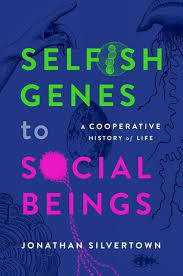
My two runners-up for “book of the year,” are Selfish Genes to Social Beings: A Cooperative History of Life by Jonathan Silverman, and Lame Deer, Seeker of Visions by John Fire Lame Deer and Richard Erdoes. Silverman’s book brings together, in an intelligent but accessible way, a great deal of what I’ve been reading from ecological developmental evolutionary biology, along with insights from anarchist anthropologies, as well as updating some of the science, sharing really rad new stories of things I did not know about, and further filling out my understanding of how we go about both individually and collectively thriving (and thriving as individuals because we thrive as a collective, while simultaneously thriving as a collective because we thrive as individuals). In particular, Silverman emphasizes that where relationships of mutual aid exist (and, as Silverman shows, they exist at the biggest group level and at the smallest genetic level), there is both a benefit to the individual (and not just to the whole) and a system in place that works to filter out those who would simply take advantage of the whole without giving anything back to others. I emphasize the second of Silverman’s points because this part frequently gets overlooked in grassroots community organizing work wherein we are constantly trying to find ways to overcome the fracturing, competitive, and entrepreneurial individualism of neoliberalism and the ways in which subaltern people—i.e. the good company in which we are privileged to find ourselves—are constantly demeaned, dehumanized, demonized, debilitated, and left for dead. So, Silverman’s book filled me with awe, joy, and wonder while also strengthening my critical perspective and helping make sense of some of my own blind spots.
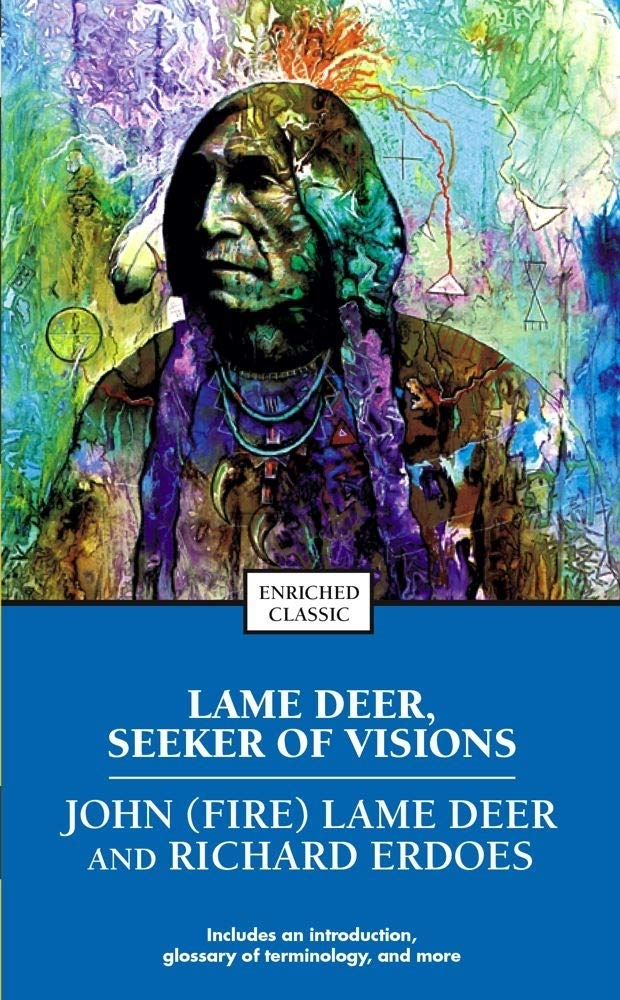
The Lame Deer and Erdoes book is basically a series of conversation Erdoes had with Lame Deer and I thought they were marvellous because of how Lame Deer is able to stay to what his people have known for a long time while also navigating the context of racial capitalism and settler colonial genocide in his homeland. I found his discussion of what it means to be a healer to be especially moving. A healer, Lame Deer asserts, is not like a Saint. A Saint is driven by a vision of purity, transcendence, and separation from things that are judged to be impure, material, and immoral. A healer, on the other hand, is someone who experiences all of life—from the life of a hard-working family person to the life of a criminalized, substance user who is forcibly deprived of housing—and who participates in everything—the good and bad, the light and dark, the sublime and the absurd—without judging so that they can become a medicine person to all of those who are walking all these different roads in life. This resonates a great deal with me personally.
There are three honorary mentions I want to highlight before moving on to movies. First, in the area of poetry which, I admit, is highly subjective, I want to mention Tom Cull’s collection, Kill Your Starlings (2023). Cull’s poems manage to mix wonder, sorrow, and humour together in a way that most people (such as myself!) only dream of being able to do. His words ignite my heart and make me cry and laugh in equal measure, all while thinking, my god, I’m so glad to be alive.
Second, in the domain of fiction and literature, I have continued my trend of ensuring I read more than 50% female-identified authors. My top fiction pick this year came as a surprise to me, given that I usually don’t much enjoy stream-of-consciousness writing (at least the more “hardcore” variety thereof, which I usually avoid entirely). However, I saw Ducks, Newburyport (2019) by Lucy Ellmann at Goodwill for a few dollars and picked it up on a whim and then, well, even though it is more than one thousand pages long, I just couldn’t stop picking it up until I was done reading it. It brilliantly crafted and, while I personally think stream-of-consciousness inclines towards intellectual posturing exhibited in the mastery of the form, I found my heart opening again and again to Ellmann’s heart-words.
Finally, because I have continued my personal reading project of reading ever-so-much about capitalism, economics, neoliberalism, and power (a truly depressing endeavor given how all-encompassing, all-powerful, and all-consuming the very worst things about humanity seem to be after reading in depth about them), I want to highlight Brett Christopher’s Our Lives in Their Portfolios: Why Asset Managers Own the World (2024). Christopher is one of a few authors whose work is worth following (along with Christopher, I would mention Adam Tooze, David Harvey, Wendy Brown, Pierre Dardot, and Christian Laval). In this book, he looks at the rise of asset manager firms like Blackstone, Blackrock, Brookfield, and Macquerie, and how they have moved into dominating housing and infrastructure. It’s a critical exposition of the present moment and, imo, crucial reading for understanding the times we live in.
BEST MOVIES
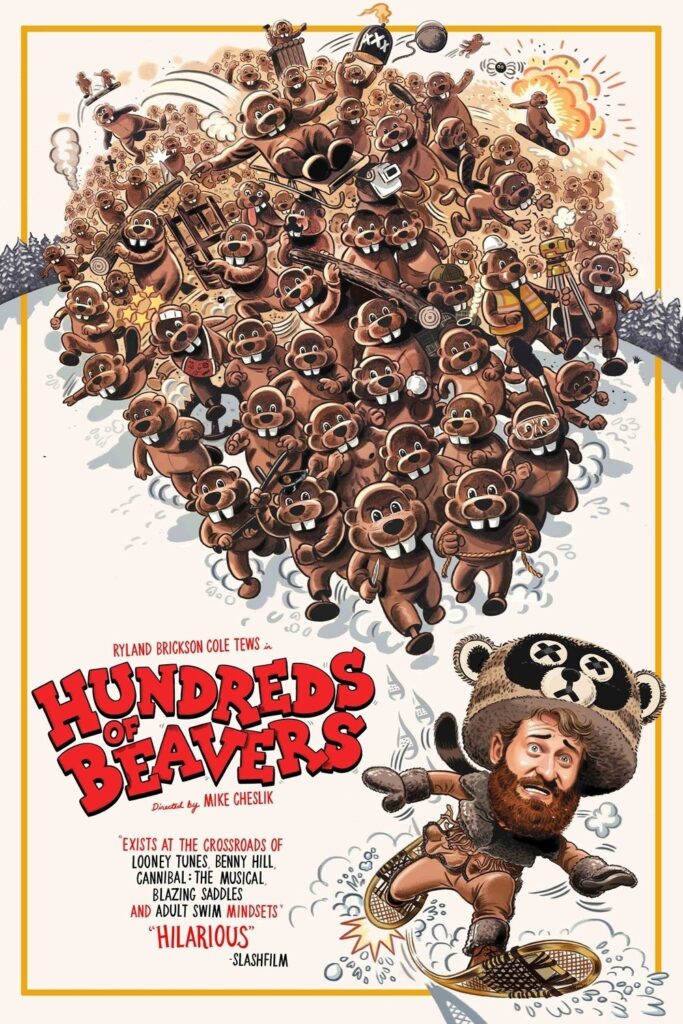
I have a three-way tie for my top film that I watched in 2024. Although very different movies, all three are absolute masterpieces and I highly recommend them. First, the biggest surprise of the year is that I watched a comedy and really, really loved it. In fact, my son and I laughed the entire way through it—big, delighted, belly-laughs—and then couldn’t stop talking about it after. What brilliant piece of artistry provoked this response in us? Mike Cheslik’s Hundreds of Beavers (2022)! I watched the trailer and didn’t know if Cheslik would be able to maintain the gag for the runtime of the film but, hoo boy, he really pulled it off. It was an exuberant experience of silliness and joy that I very much needed last year.
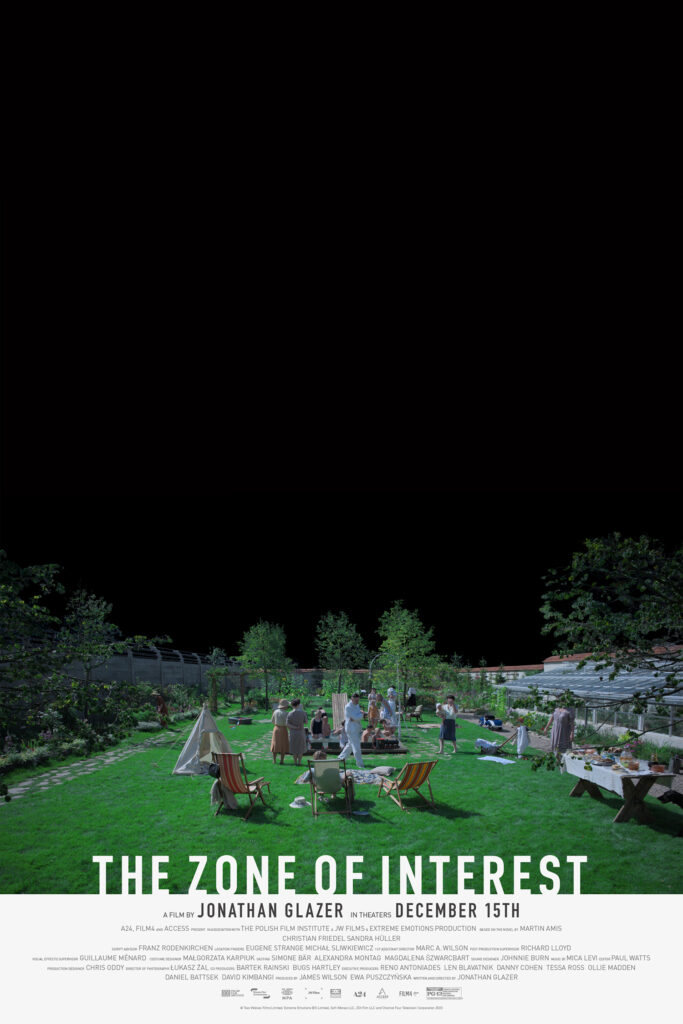
The second film, had entirely the opposite affect. Jonathan Glazer’s, The Zone of Interest (2023) deserved all the praise and awards it received last year. I was hesitant to watch it because I felt that Glazer’s previous highly-praised film, Under the Skin (2013), was exploitative and did not handle violence well. Consequently, I was unsure of how he would handle this presentation of the family life of Rudoph and Hedwig Höss during their time governing Auschwitz. How we speak about, re-present, or commodify the Holocaust is a fraught terrain. Especially, in my opinion, in the medium of film given the ways in which the medium can be the message (as per McLuhan). However, Glazer navigates this terrain in a manner that I didn’t imagine possible and he ends up producing a film that bears witness to this violence, and the people who live by this kind of violence, by what he shows, by what he does not show, and by when he chooses to show certain things while never showing certain other things. We, the viewers, are also then enabled to be witnesses rather than spectators and the content and the reflection it provokes is relevant, not only to contemporary Palestine and the Israeli-and-allies genocide occurring there, but also to any of us who live and work and raise our children and try to plant and care for our little gardens, in a land colonized and maintained by a genocidal nation state.
The third film is, perhaps, more of a love story but rather than being a romance, it is the story of the love a father has for his son. I am referring to Levan Koguashvili’s Brighton 4th (2021). This is the story of an elderly Georgian (eastern Europe Georgia, not southern USA Georgia) wrestling coach who goes to New York to help his son who maybe-kinda-sorta fucked-off on his promises to care for his own wife and family by making a life for them in America. It’s tender, and beautiful, and demonstrates that love that abides, day-after-day, not so much despite the fucked-up people who exist in the world but, rather, despite the fucked-up circumstances all of us oh-so-human people are forced to live within.
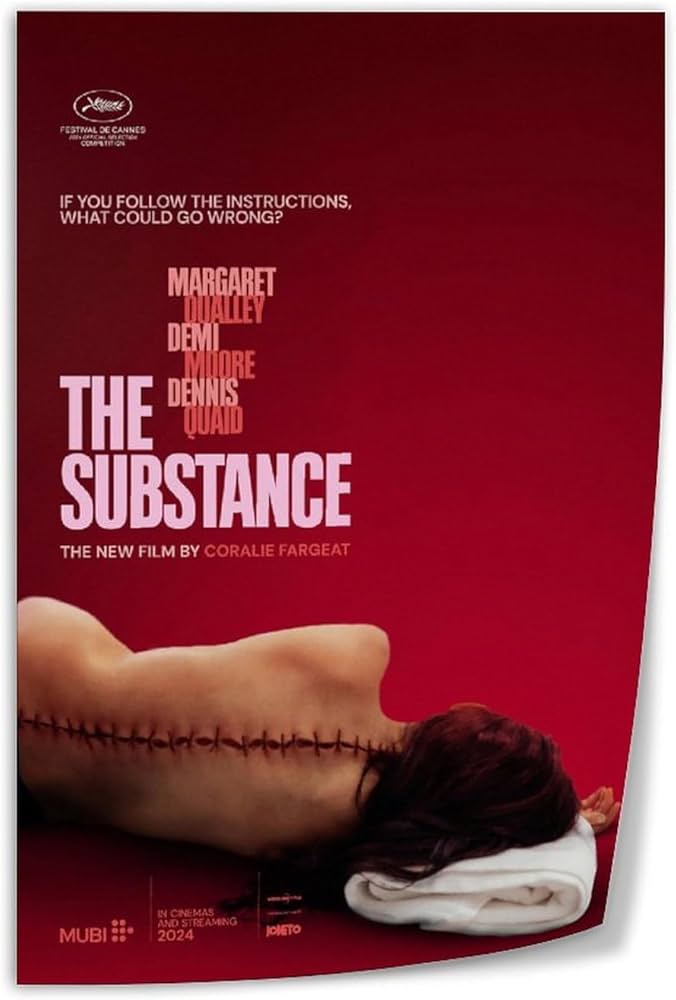
Okay, so these are the best films but because I watch a lot of horror (for reasons I’ve discussed in other posts, since I wanted to figure out why I’m drawn to this genre), I wanted to just mention a few films from that genre in case others feel like exploring it a little. The Substance (2024) by Coralie Fargeat is an absolutely fantastic, hilarious, and poignantly tragic feminist body horror (and I persist in thinking that horror is the genre that is, perhaps, doing the best when it comes to making radical feminist films these days). Well worth watching. Anna Kendrick’s Woman of the Hour (2023) is another example of solid feminist horror that has moved from the indie domain to the mainstream. Also, male director Alex Garland (whose Civil War [2024] was also one of the better movies I watched last year) did a phenomenal job of making a feminist body horror piece with Men (2022). It well captures the creeping dreadfulness that comes with, well, being a lone women around unknown men (and the final line and the protagonist’s response to it were a perfectly executed ending!).
Not just feminists but Queer folx have also been doing a lot of fun stuff with this genre and Jane Schoenbrun’s coming-of-age, I Saw the TV Glow (2024) is a standout film in that regard. Similarly, Jayro Bustamante, a Guatemalan director I’ve been following since Ixcanul dropped in 2015, has been showing how horror can be used as political critique. La Llorona (2019) was a well-told story about the ways in which an old war criminal is haunted by the woman of a famous Spanish urban legend—which Bustamante relates to the all-too-real and historical genocide of Indigenous peoples by American-backed death squads in mid-twentieth century Guatemala. In Rita (2024), Bustamante turns his gaze to the (also true) story about 41 girls who were permitted to burn to death in a locked room in an orphanage because they tried to expose the ways in which the girls in that institution were trafficked both for labour and for sex. Bustamante tells the story through Rita who still lives within the domain of fairy tales (think Pan’s Labyrinth or, for that matter, most fairy tales before they were colonized by Disney). It is extremely well-done and highly recommended.

Lastly, for those familiar with horror films, Oddity (2024), directed by Damian McCarthy, was an understated but very clever take on the suspense-horror-whodunnit genre. McCarthy plays with our expectations and keeps things moving in unexpected directions so that I was constantly revising and revisiting my suspicious throughout the film. All these films were a lot of fun to me and given that there’s a whole lot of trash that exists in this genre (as with any genre!), it’s always good to flag the good stuff.
Finally, before moving to the documentaries, I want to give an honourary mention to Gint Zilbalodis’s Flow (2024). I watched it with my son and, while I was expecting a mostly fun and cute little romp with a cat and capybara through a flooded world, there were moments of such unanticipated and forceful revelation (apocalypsis!) that my mouth dropped open and I was struck speechless (my son turned to me and said, “I’m crying and I don’t know why I’m crying!”). This is a kids movie disguised as a video game that is actually a disguised remake of Tarkovsky’s Solaris (1972) for this generation. Brilliant.
BEST DOCUMENTARIES
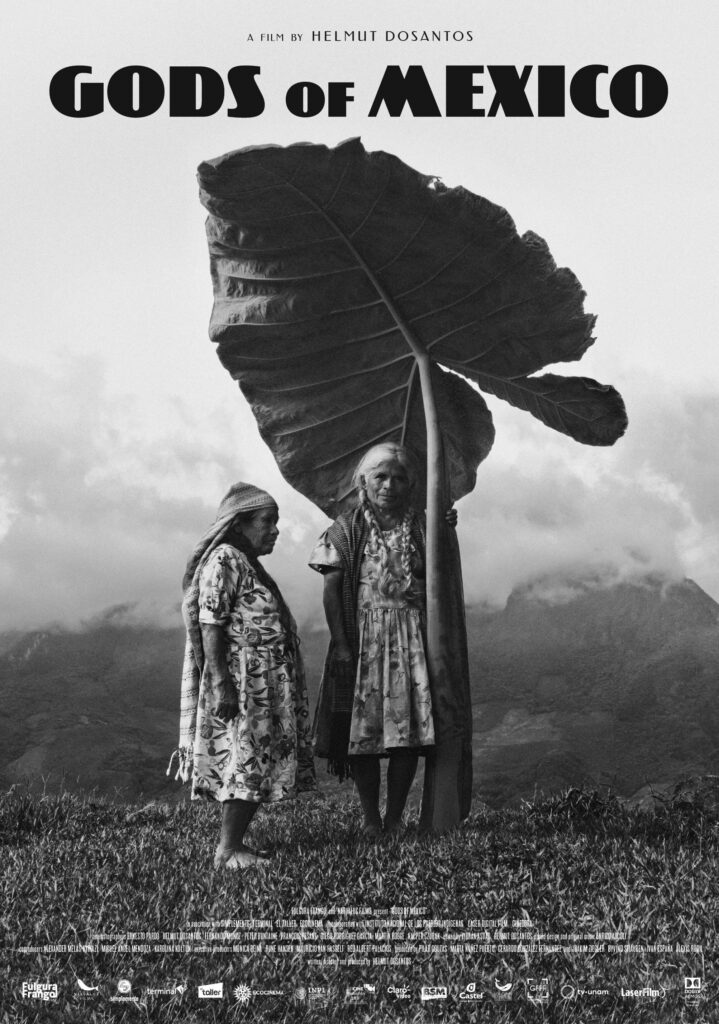
2024 felt like a bit of a drought year in terms of documentaries that I like to enjoy. I felt like I was searching and searching but really found what I was looking for. However, there were a few that stop out as real jaw-droppers that stilled my mind and heart and filled me with the wonder. Two out of three of them don’t have any real dialogue or plot. The first, and what is my top documentary that I watched in 2024, is Helmut Dosantos’s Gods of Mexico (2022). It is an astoundingly beautiful, slow, and contemplative look at some of the Indigenous folks in Mexico and their ways of working, living, dressing, and honouring their beliefs, traditions, and ancestors. It’s magical realism that is just as real as it is magical. It’s so much of what I love about what I don’t yet know about the world.
The second documentary is River (2021) directed by Jennifer Peedom and Joseph Nizeti. It is a symphonic experience where the music and the images and the rise and fall of the score along with the story of water it tells are perfectly blended and, I don’t know, I can’t help but feel like something gets healed, nurtured, and cared for in our hearts when we watch things like this. This documentary is actually available in full on Youtube thanks to TVO DOCS. See here: https://www.youtube.com/watch?v=0FC-nDw7be4&t=19s.
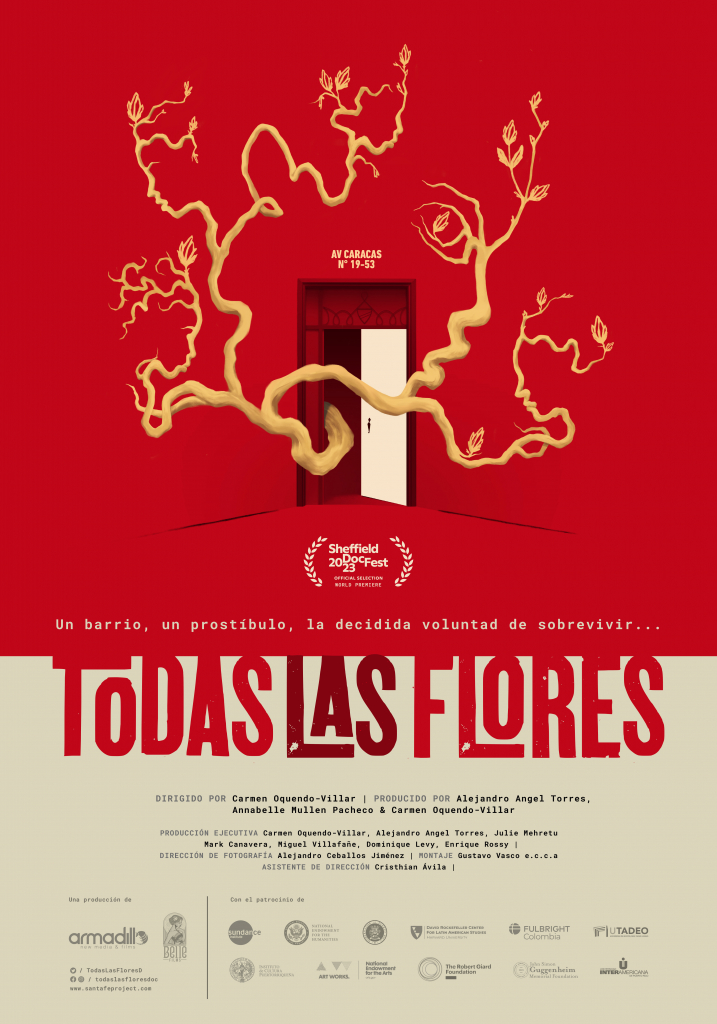
The third documentary that really captured my heart in 2024 was, Carmen Oquendo-Villar’s Todas Las Flores (All the Flowers) (2023). Oquendo-Villar spends her time getting to know the trans sex workers who live and work in the Santafé district of Bogotá, Colombia. This district is something of a safe zone for sex workers, particularly Queer or trans sex workers, although it’s also a highly policed zone of containment, wherein police violence is ubiquitous (reminding me of the approach Vancouver took to the downtown eastside and, in fact, given that I have spent a fair bit of time with trans sex workers—honestly, one of my all-time personal favourite demographics of people—I was reminded of many of my loved ones and their experiences, even though Bogotá, Colombia is a long way away from London, Ontario or Vancouver, BC). At one point, one of the sex workers says that, “everything that’s beautiful in the world gets stuck in the webs we weave, before it can ever reach us.” But I think something beautiful exists in this film and I don’t think it got stuck, and I think it reached me. Thank you.
THE WORST OF THE WORST
Okay, so that’s all the good stuff. What about the crummy stuff? Now’s my chance to talk shit about the stuff I didn’t like!
Hands down, the very worst book I read in 2024 was David Abulafia’s The Boundless Sea: A Human History of the Oceans (2019). This boring-as-fuck, 1000-page monstrosity reads like the wet dream of the guy who is in charge of managing Wal-Mart’s global distribution infrastructure and who does the job, not for the money, but because he really, really loves it. Holy smokes, after reading this you would think that the only think that mattered about all of the everything is commerce and war. Old White men shit. And, oh, not coincidentally, it turns out that Abulafia is something akin to the Jordan Peterson of Britain. Not shocked after reading this.

My runner-up for worst book of the year is Diary: A Novel (2003) by Chuck Palahniuk. I’ve always intended to read something by him given all the buzz, Fight Club, etc., etc. Having now read a book by him, I can see why, looking back, most of the people I know who raved about him were dudes I didn’t really like very much. Angry White men shit.
Okay, enough about books. I have a three-way tie for worst movie I watched in 2024, and each is bad in its own unique way. First, Damien Leone’s Terrifier 3 (2024), is probably the most graphic rendition of mainstream shock, gore, torture porn that I’ve watched (there’s worse stuff out there, but it’s mostly underground-ish and I don’t recommend any of it, hell, I won’t even name any of it!). I’m just not into this genre at all and I just walk away from movies like this feeling gross. I understand that splatter gore can be fun to a certain extent but we all have our lines in terms of how far we’re willing to go with that and still feel like we’re having fun. I can even cope moments of extreme violence in films, but one of the lines I don’t ever like crossing is when that violence is sexualized, especially in a manner that is misogynistic. I feel like Terrifier 3 gets off on some of that and I’m not here for it. Hard pass.
The second tied for worst movie that I watched in 2024 is entirely different. It is Helena Wittmann’s Human Flowers of Flesh (2022). I can do slow cinema. I actually really like a lot of slow cinema (two of my top documentaries of 2024 fit that category) but, damn, it’s hard to imagine a movie more boring than this one (Skinamarink, a critically-acclaimed horror film that my son loved but that I could barely stay awake during would be a close second). Honestly, I feel like unless you’re 22 and really feel like a moody shot of someone smoking a cigarette on a dock at night is, like, everything, and then you do that shot again on a boat, and then there’s someone swimming in the water, and then there’s more smoking on a boat and, uh, this is supposed to be super affective but, um, no.
Lastly, there’s Adam Wingard’s Godzilla x Kong: The New Empire (2024) which was an explosive reminder of why mainstream Hollywood films are absolute shit, all sound and fury, an assault on the sense, with absolutely zero redeeming qualities. No character, no plot, no affective engagement, no anything but big special effects. Great to watch if you’re ten. Absolute torture to watch if you’re not. I watched this months ago and I’m still gobsmacked by how awful it was.
As for documentaries, I watched a few that I was hoping brought critical comment and reflection to the topic at hand but which ended up just feeling like exploitative tabloid journalism/clickbait. The standouts in this regard were (in no particular order), Sam Hobkinson’s Lover Stalker Killer (2024), Eliás Léon’s The Alcàssar Murders (2019), and Mark Lewis’s Don’t F**k With Cats (2019) (all big-ticket items on Netflix and all pretty shitty—I really feel like the quality of documentaries on Netflix has been going downhill lately). However, the crummiest documentary I watched in 2024 was Neville Morgan’s trying-to-be-clever documentary about another man who, despite being a total POS, had convinced the world that he was super-duper clever. This is The Other Side of the Wind (2018), Morgan’s biopic about Orson Welles. I’m so over movies about supposedly genius men who were just fucking pricks but who get a pass for being “tortured artists” and who then end up being endlessly valorized, even in films that present themselves as problematizing the legacies of those men. Man, fuck these guys.
LOOKING FORWARD TO 2025
So, fittingly, as I look forward to 2025, I continue to extend the amount of reading I want to do from female-identified authors. In terms of fiction an literature, my goal is to have my reading be composed of at least 80% female authors. I also intend, for the first time, to pay attention to the gendered composition of authors I read in other genres.
I also intend to do a lot more reading in relation to what I’ve taken to referring to as “subaltern spiritualities.” I didn’t mention this in detail in my reviews above, but I’ve become increasingly fascinated by spiritualities that arise among oppressed groups, that often co-opt elements of the religions used to colonize them, that form wild hybrids with other colonized and oppressed groups, and that are frequently branded as heretical, demonic, and criminal. I’m thinking of things like Quimbanda in Brazil, Vodou in Haiti, Santería in Cuba, and, in their own ways, spiritualities Indigenous to Turtle Island and to Europe both before and after Christian colonization.
I’m also excited to try to share a bit more of my own writings with some more of my poems being published in a forthcoming collection and my fifth book, A Frontline Worker’s Manifesto: Lessons Learned in Good Company, being published by the Cascade Imprint of Wipf & Stock in the next couple of months. I’m hoping to actually do a bit of touring for that book. Fingers crossed!
In terms of movies, I don’t really have any plans or goals. I’m hoping to find more science or nature documentaries that lead me to the wonder, as I have had a hard time finding those documentaries lately. Any recommendations are welcome. In fact, I would be keen to hear what you all enjoyed the most and least from what you read and viewed last year! Feel free to share.
Much love in the new year.
xoxo
Dan
BOOKS (125)
Fiction & Literature (24)
- Abdelmahmoud, Elamin. Son of Elsewhere: A Memoir in Pieces (2022).
- Akbar, Kaveh. Martyr! (2024).
- Batuman, Elif. Either/Or (2022).+
- Borges, Jorge Luis and Adolfo Bioy-Casares. Chronicles of Bustos Domecq (1967).
- Charney, Noah and Svetlana Slapšak. The Slavic Myths (2023).+
- Cole, Teju. Every Day Is For The Thief (2007).
- Coutu, Mia. Woman of the Ashes (2018 [2015]).
- Csáth, Géza. Opium and Other Stories (1983).-
- Cusk, Rachel. Parade (2024).
- Ellmann, Lucy. Ducks, Newburyport (2019)++
- Ernaux, Annie. A Woman’s Life (1991 [1988]).
- Glouberman, Misha with Sheila Heti. The Chairs Are Where the People Go (2011).
- Herrera, Yuri. Season of the Swamp (2024).
- Heti, Sheila. Alphabetical Diaries (2024).
- ________. The Middle Stories (2012).
- Hrabal, Bohumil. Closely Watched Trains (1965).
- Moreno-Garcia, Silvia. Mexican Gothic (2020).
- Mutonji, Téa. Shut Up You’re Pretty (2019).+
- Nelson, Maggie. Like Love: Essays and Conversations (2024).
- Palahniuk, Chuck. Diary: A Novel (2003).-
- Petrushevskaya, Ludmilla. There Once Lived a Girl Who Seduced Her Sister’s Husband, and He Hanged Himself: Love Stories (2013).+
- Saunders, George. Liberation Day: Stories (2022).+
- Varghese, Anuja. Chrysalis: Stories (2023).+
- Zambra, Alejandro. My Documents (2015).-
Graphic Novels (11)
- Arni, Samhita and Moyna Chitraker. Sita’s Ramayana (2011).+
- Dandro, Travis. Hummingbird Heart (2022).
- ________. King of Kings Court: A Memoir (2019).
- Grove, Emma. The Third Person (2022).+
- Head, Glenn. Chartwell Manor (2021).+
- Henry Jr., Gordon and Elizabeth LaPensée (eds.). Not (Just) (An)Other: Sovereign Traces Vol. 1 (2018).
- Katin, Mariam. We Are On Our Own: A Memoir (2023 [2006]).
- Nichols, L. I Am Only A Foreigner Because You Do Not Understand (2023).
- ________. Flocks (2018).+
- Noble, Danny. Shame Pudding: A Graphic Memoir (2020).
- Olmo, Irene. I Don’t Want to Be a Mom (2023 [2019]).
Poetry (16)
- Barton, John (Guest Ed.), and Anita Lahey (Series Ed.). Best Canadian Poetry 2023 (2022).
- Bully, Victoria Afulwei. Quiet: Poem (2022).
- Christakos, Margaret. Sooner (2005).-
- Cull, Tom. Kill Your Starlings (2023).++
- DeRango-Adem, Adebe. Vox Humana: Poems (2022).-
- Di Nardo, Desi. The Cure is a Forest (2011).
- Gay, Ross. Be Holding: A Poem (2020).+
- González, Rigoberto. Unpeopled Eden (2013).+
- Hasham Beck, Zeina. O (2022).+
- Herrera, Juan Felipe. Every Day We Get More Illegal (2020).
- Howell, Christopher. Love’s Last Number: Poems (2017).
- Lahaye, Anita (series ed.) and Bardia Sinaee (guest ed.). Best Canadian Poetry 2024 (2023).
- Lorde, Audre. The Marvelous Arithmetics of Distances: Poems 1987-1992 (1993).
- Mort, Valzhyna. Music for the Dead and Resurrected: Poems (2020).
- Prime, Tom. Mouthfuls of Space (2021).
- Sinaee, Bardia. Intruder (2021).
Philosophy and General Theory (10)
- Badiou, Alain with Nicolos Truong. In Praise of Love (2009).
- Barthes, Roland. Mourning Diary (2010 [2009]).
- Bhaba, Homi K. The Location of Culture (2007 [1994]).
- Buber, Martin. I and Thou (1971 [1923]).
- Cleary, Thomas (ed.). The Essential Confucius: The Heart of Confucius’ Teachings in Authentic I Ching Order (2020).
- Dederer, Claire. Monsters: A Fan’s Dilemma (2023).+
- Eagleton, Terry. Hope Without Optimism (2015).
- Evans, Brad and Henry Giroux. Disposable Futures: The Seduction of Violence in the Age of the Spectacle (2015).
- Greenaway, Jon. Capitalism: A Horror Story. Gothic Marxism and the Dark Side of the Radical Imagination (2024).+
- Schopenhauer, Arthur. On the Suffering of the World (2004 [1850]).
Politics, History, Economics (10)
- Burley, Shane. Fascism Today: What It Is and How to End It (2017).
- Christophers, Brett. Our Lives in Their Portfolios: Why Asset Managers Own the World (2024).++
- Durand, Cédric. How Silicon Valley Unleashed Techno-feudalism: The Making of the Digital Economy (2024).
- Fraser, Nancy. Cannibal Capitalism: How Our System Is Devouring Democracy, Care, and the Planet—and What We Can Do about It (2022).
- Giannopoulos, Nikolaos. Terrorist or Freedom Fighter? The Right to Resist (2023).–
- Harris, Malcolm. Palo Alto: A History of California, Capitalism, and the World (2023).+
- Osterweil, Vicky. In Defense of Looting: A Riotous History of Uncivil Action (2020)+
- Pasternak, Shiri, Kevin Walby and Abby Stadnyk (eds.). Disarm, Defund, Dismantle: Police Abolition in Canada (2022).-
- Semprun, Jorge. Literature or Life (1997 [1994]).
- Subar, Rebecca. When to Talk and When to Fight: The Strategic Choice Between Dialogue and Resistance (2021).+
Psy-Disciplines (12)
- Antić, Ana. Therapeutic Fascism: Experience the Violence of the Nazi New Order (2016).
- Berlant, Lauren. On the Inconvenience of Other People (2022).+
- Bollas, Christopher. Mourning and Melancholia: Life in an Age of Bewilderment (2018).
- ________. The Evocative Object World (2009).
- ________. Hysteria (2000).+
- Dana, Deb. Polyvagal Exercises for Safety and Connection: 50 Client-Centered Practices (2020).
- Fromm, Erich. The Sane Society (1955).
- Leader, Darian. Stealing the Mona Lisa: What Art Stops Us From Seeing (2002).
- ________. Promises Lovers Make When It Gets Late (1997).
- Lippi, Silvia. The Decision of Desire (2020 [2013]).
- Rose, Jacqueline. Mothers: An Essay on Love and Cruelty (2018).
- Sedgwick, Eva Kosofsky. Touching Feeling: Affect, Pedagogy, Performativity (2003).
Indigenous Theory and Literature (9)
- Dimaline, Cherie. Empire of Wild (2019).+
- Dion-Glowa, Justene. Trailer Park Shakes (2022).
- Lame Deer and Richard Erdoes. Lame Deer, Seeker of Visions (1994 [1972]).++
- Niutaq Cultural Institute and Qikiqtani Inuit Assocation. Ilagiinniq: Interviews on Inuit Family Values from the Qikiqtani Region (2011).+
- Orange, Tommy. There There (2018).+
- Simpson, Leanne Betasamosake. Islands of Decolonial Love: Songs and Stories (2013).+
- Thomas-Muller, Clayton. Life in the City of Dirty Water: A Memoir of Healing (2021).
- Washuta, Elissa. My Body Is a Book of Rules (2014).+
- Whitehead, Joshua. Jonny Appleseed: A Novel (2018).
Sex and Gender (7)
- Angel, Katherine. Unmastered: A Book On Desire, Most Difficult To Tell (2012).
- Barjola, Nerea. The Sexist Microphysics of Power: The Alcasser Case and the Construction of Sexual Terror (2024).+
- Butler, Judith. Who’s Afraid of Gender? (2024).+
- Shraya, Vivek. I’m Afraid of Men (2018).
- Spurgas, Alyson K. Diagnosing Desire: Biopolitics and Femininity into the Twenty-First Century (2020).+
- Valenti, Jessica. Sex Object: A Memoir (2016).
- Witt, Emily. Future Sex (2016).-
Science & Nature (12)
- Abram, David. Becoming Animal: An Earthly Cosmology (2010).
- Abulafia, David. The Boundless Sea: A Human History of the Oceans (2019).–
- Carroll, Sean. The Biggest Ideas in the Universe: Space, Time, and Motion (2022).
- Douglas, Angela E. Fundamentals of Microbiome Science: How Microbes Shape Animal Biology (2018).
- Justice, Daniel Heath. Badger (2015).+
- Keltner, Dacher. Awe: The New Science of Everyday Wonder and How It Can Transform Your Life (2023).
- Kissinger, Ruth. Slime: How Algae Created Us, Plague Us, and Just Might Save Us (2019).-
- Lightman, Alan. Probable Impossibilities: Musings on Beginnings and Endings (2022).
- Schlanger, Zoë. The Light Eaters: The New Science of Plant Intelligence (2024).
- Silvertown, Jonathan. Selfish Genes to Social Beings: A Cooperative History of Life (2024).++
- Solnit, Rebecca. Wanderlust: A History of Walking (2000).
- Wikelski, Martin. The Internet of Animals: Discovering the Collective Intelligence of Life on Earth (2024).
Tech (3)
- Labutut, Benjamin. The Maniac (2023).
- Varoufakis, Yanis. Technofeudalism: What Killed Capitalism (2024).
- Zuboff, Shoshana. The Age of Surveillance Capitalism: The Fight for a Human Future at the New Frontier of Power (2019).++
Race Theory (3)
- Belew, Kathleen. Bring the War Home: The White Power Movement and Paramilitary America (2018).
- Gilroy, Paul. Postcolonial Melancholia (2005).+
- Fekete, Liz. Europe’s Fault Lines: Racism and the Rise of the Right (2018).
Memoirs (1)
- Grue, Jan. I Live a Life Like Yours: a memoir (2021 [2018]).
Subaltern Spiritualities (7)
- Brown, Karen McCarthy. Mama Lola: A Vodou Priestess in Brooklyn (1991).
- Campbell, John Gregorson. Witchcraft & Second Sight in the Highlands & Islands of Scotland: Tales and Traditions Collected Entirely from Oral Sources (1902).
- de Mello e Souza, Laura. The Devil and the Land of the Holy Cross: Witchcraft, Slavery, and Popular Religion in Colonial Brazil (2003 [1986]).+
- Frisvold, Nicholas de Mattos. Trollrún: A Discourse on Trolldom and Runes in the Northern Tradition (2021).+
- ________. Exu and the Quimbanda of Night and Fire (2012).+
- Hayes, Kelly E. Holy Harlots: Femininity, Sexuality, & Black Magic in Brazil (2011).+
- Oxóssi, Deigo De. Traditional Brazilian Black Magic: The Secrets of the Kimbanda Magicians (2018).+
MOVIES (60)
- Álvarez, Fede. Alien: Romulus (2024).-
- Ball, Kyle Edward. Skinamarink (2022).-
- Beck, Scott and Bryan Woods. Heretic (2024).
- Bertino, Bryan. The Dark and the Wicked (2020).-
- Bettinelli-Opin, Matt and Tyler Gillett. Abigail (2024).-
- ________. Ready or Not (2019).+
- Bustamante, Jayro. Rita (2024).+
- Cairnes, Cameron and Colin Cairnes. Late Night With the Devil (2023).+
- Casas, Caye. The Coffee Table (2022).
- Cervera, Michelle Garza. Huesera: The Bone Woman (2023).
- Ceylan, Nuri Bilge. About Dry Grasses (2023).
- Cheslik, Mike. Hundreds of Beavers (2022).++
- Cody, Diablo. Lisa Frankenstein (2024).
- Corredor, Alberto. Baghead (2023).-
- Duffield, Brian. No One Will Save You (2023).
- Eggers, Robert. The Northman (2022).+
- ________. The Lighthouse (2019).
- Fargeat, Coralie. The Substance (2024).+
- Fincher, David. The Killer (2023).
- Finn, Parker. Smile 2 (2024).-
- Garland, Alex. Civil War (2024).+
- ________. Men (2022).+
- Glazer, Jonathan. The Zone of Interest (2023).++
- Holland, Agnieszka. Green Border (2023).+
- Khan, Nahnatchka. Totally Killer (2023).
- Koguashvili, Levan. Brighton 4th (2021).++
- Kravitz, Zoë. Blink Twice (2024).
- Kulumbegashvili, Dea. Beginning (2020).
- Kusijanović, Antoneta Alamat. Murina (2021).
- Helander, Jalmari. Sisu (2022).
- Kendrick, Anna. Woman of the Hour (2024).+
- Lanthimos, Yorgos. Poor Things (2023).
- Leone, Damien. Terrifier 3 (2024).-
- Levy, Shawn. Free Guy (2021).
- Loach, Ken. The Old Oak (2023).+
- McCarthy, Damian. Oddity (2024).+
- McGuire, Bryce. Night Swim (2024).-
- Miranda Maria, João Paulo. Memory House (2020).
- Mohan, Michael. Immaculate (2024).-
- Mollner, J. T. Strange Darling (2023).-
- Morgan, Rob. Stopmotion (2023).
- Nash, Chris. In a Violent Nature (2024).-
- Obasi, C. J. Mami Wata (2023).
- Perkins, Osgoode. Longlegs (2024).
- Renck, Johan. Spaceman (2024).-
- Rugna, Demián. When Evil Lurks (2023).
- Sanders, Chris. The Wild Robot (2024).
- Schindler, Adam and Brian Netto. Don’t Move (2024).-
- Schoenbrun, Jane. I Saw the TV Glow (2024).+
- Shyamalan, Ishana Night. The Watchers (2024).-
- Singer, Tilman. Cuckoo (2024).
- Villeneuve, Denis. Dune: Part Two (2024)+
- Wenders, Wim. Perfect Days (2023).
- West, Ti. MaXXXine (2024).
- ________. The House of the Devil (2009).-
- Williams, Sean Price. The Sweet East (2023).+
- Wingard, Adam. Godzilla x Kong: The New Empire (2024).-
- Wittmann, Helena. Human Flowers of Flesh (2022).-
- Zellner, Nathan and David Zellner. Sasquatch Sunset (2024).
- Zilbalodis, Gints. Flow (2024).+
DOCUMENTARIES (33)
- Angelini, Giorgio and Arthur Jones. The Antisocial Network: Memes to Mayhem (2024).
- Bogado, Daniel. Tsunami: Race Against Time (2024).
- Connor, Eric.The Soul in Peril: The Ezidis (Yazidis) of Iraq (2015).
- Doneen, Derek. Dancing for the Devil: The 7M TikTok Cult (2024).
- Dosantos, Helmut. Gods of Mexico (2022).++
- Fannberg, Yrsa Roca. The Last Autumn (2019).
- Ford, Yance. Power (2024).
- Haptas, John and Kristine Samuelson. Life Overtakes Me (2019).
- Hobkinson, Sam. Lover Stalker Killer (2024).-
- Khreino, Dina. Fine Lines (2019).
- Kontakos, Valerie. Queen of the Deuce (2024).
- Kubler, Katherine. The Program: Cons, Cults, and Kidnapping (2024).
- León, Elías. The Alcàsser Murders (2019).-
- Lewis, Mark. Don’t F**k with Cats: Hunting an Internet Killer (2019).-
- Mani, Sahra. Bread and Roses (2024).
- Mark, Ari and Phil Lott. This Is Zodiac Speaking (2024).
- Miller, Katrina and Beret E. Strong. This is [Not] Who We Are (2022).
- Mones, Cara, and Caroline Suh. Sorry/Not Sorry (2023).
- Morgan, Neville. The Other Side of the Wind (2018).–
- Morrison, Bill. Dawson City: Frozen Time (2016).+
- Nizeti, Joseph and Gisela Kaufmann. Fungi: Web of Life (2023).
- NoiseCat, Julian Brave and Emily Kassie. Sugarcane (2024).+
- O’Neill, Matthew an Perri Petlz. Surveilled (2024).
- Oppenheim, Lance. Ren Faire (2024).
- Oquendo-Villar, Carmen. Todas Las Flores (All the Flowers) (2023).++
- Pappas, Hayley and Smiley Stevens. Breath of Fire (2024).
- Peedom, Jennifer and Joseph Nizeti. River (2021).++
- Smith, Chris. Biggest Heist Ever (2024).
- Stenson, Edmund and Daniel Roher. Blink (2024).
- Vallejo, Juan. Cerro Rico, Tierra Rica (2012).
- White, Ryan. Into the Fire: The Lost Daughter (2024).+
- Wilson, Lana. Look Into My Eyes (2024).
- Wiseman, Frederick. Menu-Plaisirs Les Troisgros (2023).+